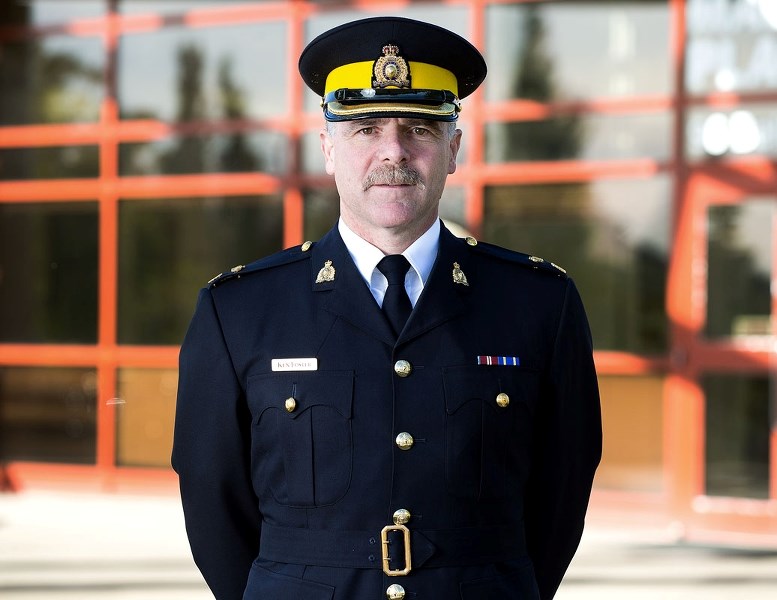In the High Arctic, policing is a lonely job. It’s also a place where you can learn the most about working with communities, says Insp. Ken Foster who recently took the reins of the St. Albert RCMP detachment.
“When you are alone in the community and your nearest back-up is two hours away by plane, it’s very humbling,” he says. “You learn to be diplomatic, being self-reliant and not getting yourself into a jam.”
His rĂ©sumĂ© sounds almost overqualified for the job in St. Albert, which is low on the country’s crime severity index. Foster’s 24 years with the RCMP include several postings in Alberta and across all three territories, where he worked on everything from bear attacks to homicides. In his last posting in the Yukon, he oversaw 12 detachments.
But Foster wanted to be closer to family in Alberta again. He likes the “meat and potatoes” of the job, where you work closely with the front-line staff and the community, he says.
“When I oversaw a whole bunch of detachments what I missed was being the chief of one detachment. There’s a big satisfaction in having that responsibility,” he says. “It was time for a change and I always liked St. Albert.”
Foster moved into his new office three weeks ago, after taking over from the city’s previous detachment commander, Kevin Murray. It still looks somewhat empty, with unpacked boxes in one corner, and three different policing hats on display on top of a closet. He’s settling in, he says, to the office but also to the job.
It’s too early to say whether he will change anything specific about policing in the city. But he already likes St. Albert because the RCMP has “wonderful support from the community and council.” He plans to continue that relationship and trust.
Part of that is keeping the RCMP visible in the city, and also maintaining a close relationship with Edmonton police, so criminals recognize “this isn’t the place to do business.”
“If they see we are visible and they see we have a success rate on solving the crimes that we do have, and that we are on top of them quickly, word travels,” he says. “And then you also have a community that has the courage to care and they are prepared to stand up and help.”
He also recognizes that not all problems can be solved through policing alone. Many files that end up on an officer’s desk are related to problems with health, education or addictions. That’s why it’s important to build relationships outside of one’s profession, he says.
Foster was stationed in Strathmore in southern Alberta when crystal meth became a concern in 2006. He worked with other community organizations to create a group that would teach youth the dangers of drugs. That group is still active today, he says.
“The most important thing that I’ve found is establishing those relationships within the community,” he says. “And I suppose being somewhat humble. We are not perfect, we don’t have all the answers all the time.”
In one of his most satisfying, but also horrific cases, Foster visited a small town in the High Arctic. A young disabled girl had told her aide of being sexually assaulted. Foster flew in for two days and ended up staying two weeks, unearthing a 35-year history of one man tormenting his community, including his own wife and children.
He later arrested the man, he says. But it wasn’t until he walked from door to door, and talked to each neighbour, that he earned people’s trust and the story came together.
Foster says he never planned to go into policing, but took an interest in the job after meeting some RCMP members as a teenager (he stresses he never got in trouble with the law) and playing hockey with them. He then started seeing them as role models. His uncle is also a Mountie, as are members of his wife’s family, he says.
“They represented the kind of person I wanted to be,” he says. “There was nothing special they did but they were decent, upstanding citizens who worked hard and truly cared about the community. It wasn’t all about them.”



